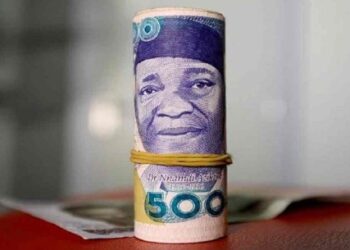The Central Bank of Nigeria (CBN) has released the minutes of its Monetary Policy Committee (MPC) meeting held on July 23 and 24 and attended by all 12 members.
At Naira-metrics we went through the statements of each member and it seems that a majority were tilted towards greater flexibility in the exchange rate management regime of the CBN in the future. In some instances they out rightly opposed the current policies and suggested the CBN face up with reality.
Below are major excerpts from each MPC member regarding the naira and foreign exchange allocation by the CBN. We highlighted areas were members expressed concerns or out rightly opposed to the current policies of the CBN.
- ADELABU, ADEBAYO
A critical issue at this point in time is the need to build confidence in the entire economy as such could lead to conversion of some of the portfolio investments to foreign direct investment. Following this, the entire mechanism of foreign exchange allocation ought to be reviewed with a view to enhancing policy consistency. Efforts should be made to ensure that all obstacles inhibiting the effectiveness and efficiency of the current framework are removed. A major challenge to the current framework is the wide and unacceptable premium between the interbank and the BDC rates. The premium should be narrowed after which some flexibility could be introduced into the interbank market, possibly by widening the band.
- ALADE, SARAH O
In order to encourage capital inflows and improve macroeconomic fundamentals there is urgent need for a liquid, efficient and competitive foreign exchange market that will ultimately lead to improvement in resource allocation.
- BALAMI, DAHIRU HASSAN
Other forecasting risk in the economy include cloud of uncertainty surrounding the subsidy removal by the new administration which might affect future price stability, the growth in global crude oil supplies and its impact on external reserve accretion and exchange rate volatility and the widening gap between the interbank exchange rate and the Bureau de Change which is alarming. This is partly driven by speculative demand as well as the declining level of oil revenue due to declining oil prices.
- BARAU, SULEIMAN
The BDCs’ market is very shallow as the proportion of foreign exchange in this market is still relatively small. Using its rate to mirror the real effective exchange rate could be misleading as well as heavily penalize industries whose products are critical to the growth of the Gross Domestic Product. Besides, depreciation of the exchange rate may not be beneficial to our economy in view of the inelastic nature of our exports and imports. I would rather prefer a guided flexibility in the market such as the widening of the band around the interbank rate. Overtime, with domestic production of goods, excluded from the interbank foreign exchange market, demand pressure would reduce and convergence of the two rates would be feasible. In the meantime, rather than further devaluation, effective monitoring mechanism should be put in place to prevent round tripping and the attendant arbitrage opportunity as well as continuance of the demand management measures.
- DANIEL-NWAOBIA, ANASTASIA
The exchange rate remains weak partly due to low accretion to foreign reserves. There is therefore the need to put policy in place to attract more foreign investments while we retain the existing investments in order to boost the level of the external reserves. Efforts should also be made to block all revenue leakages as well as discourage speculative demand in the foreign exchange market.
- GARBA, ABDUL-GANIYU
The malfunctioning of the forex market is a major constraint to policy effectiveness and the way it is being addressed has significantly altered the framework for monetary policy. The data shows upward trending of forex market 30 spread (difference between official and BDC) from an N2.7 (January 1, 2013) to N3.19 (June 10, 2013), N14.76 (December 31, 2013) and N16 a day before the policy shifts of November 25, 2014. The rising forex spread is a clear indication of inefficiencies in the allocative mechanism and ineffectiveness of policy. After the policy shifts at the November 2014 MPC, the spread rose steadily to N42.32 on February 18, 2015 when the RDAS auction system was abolished. The forex spread (now the difference between interbank and BDC) widened further to N44 on July 21, 2015. Clearly, the mechanism for allocating forex in Nigeria is not working and needs an urgent fix to restore efficiency, effectiveness, credibility, transparency and liquidity.
The real issue for me at this MPC (July 2015) are the weaknesses of the mechanism for allocating forex in Nigeria. The failure has adverse effects on growth, inflation, external balance and capital market stability as well as on the credibility of the interest rate corridor and indeed, the credibility of monetary policy. Given the liberalization of foreign borrowing, restoring efficiency and effectiveness of the mechanism for rationing foreign exchange is also critical to financial system stability.
Improving market functioning in the forex, money and capital markets are critical to policy effectiveness and to the ability of fiscal authorities to achieve macroeconomic goals of growth, employment and stability (price and external). Unless the markets function well, monetary policy would not be effective at least from the view point of the commonwealth. At the moment all three markets are malfunctioning and blunting the effectiveness of monetary policy.
- LAWSON, I. STANLEY
It is imperative to ensure that the existing banking stability is maintained and therefore any administrative action that is likely to impinge on, or dampen the resilience of the financial system and the functioning of the financial markets should be promptly reviewed.
While it is not good economic practice to attempt to hold price and quantity, our peculiar circumstance has forced the Central Bank of Nigeria to attempt to strike a delicate balance between demand and price control. Since this has not yielded the desired result, the introduction of some flexibility around price may be advisable at this time. With this, I believe that some of the distortions that prevail in the market today will begin to self-moderate.
- NNANNA, O. JOSEPH
Despite the accumulation of a marginal reserve accretion – the demand pressure in the forex market remained strong in spite of the strong demand management strategies which were introduced to encourage local substitution by excluding the funding of non-core imports. Perhaps, a complimentary foreign exchange ‘supply’ management strategy may require the introduction of some ‘guided’ flexibility in the exchange management going forward.
In the circumstance, I saw merit advocating for the implementation of a policy of ‘guided’ flexibility in the determination of the naira/dollar exchange rate in the interbank market in order to induce greater supply of forex higher liquidity in the interbank market. I am certain that this strategy shall assist in narrowing the widening arbitrage premium in the interbank and BDC rates.
- UCHE, CHIBUIKE U
In order to curtail the increasing demand and pressure on its limited foreign exchange the CBN management has administratively put in place a discretionary foreign exchange management system which essentially prevents banks from allocating foreign exchange to companies that want to import specified goods which the CBN believes can be manufactured locally. Although I am in full support of policies that encourage local production, I am not altogether sure that the CBN alone can effectively achieve this without the collaboration of the fiscal authorities. In my view, the denial of foreign exchange to businesses that engage in legitimate economic activities is confounding. It certainly makes better sense for the Government to officially ban such products out rightly. More important however is the fact that I am not convinced the CBN has the legal powers to deny the allocation of foreign exchange to legitimate businesses engaging in legitimate economic activities.
- YAHAYA, SHEHU
The foreign exchange situation remains a challenge. Significant pressures on the value of the Naira remain, despite the depreciation in November 2014 and the measures taken by the CBN to manage demand. The pressures obviously remain due to the lower earnings from oil exports, a reduction of reserves, policy credibility and speculations on the future direction of the exchange rate.
- ADEDOYIN SALAMI
Signaling another “all-clear” for higher interest rates, by raising the MPR, would also not address overarching concerns of investors in Nigeria; the majority of whom appear to be discouraged by uncertainties around post devaluation Naira Exchange Rate values. Investors are consequently standing back in askance, baffled also by the CBN’s expressed unwillingness to countenance any further currency adjustments and market liberalizations.
The recent decision to deny foreign currency market access to 41 categories of imported items will, doubtless, crimp growth in the short-to-intermediate term. In this regard, the CBN likely needs to unambiguously justify its decision to trade-off growth and employment for banking and exchange rate stability. All of the above, and related developments, lead me to support rational views that a greater degree of flexibility is needed to sustainably attend Naira exchange rate management.
The measures seem to be setting back vital processes for deepening and advancing the development of our domestic financial markets. In the absence of transparent price discovery, and wholesale market liquidity, allocations of FX (as a scarce resource) tend to rapidly become politicized; leading to allocation by subjective considerations – at best. Similarly formulated measures have been attempted, on several occasions, by past Federal and CBN Administrations. Each time, as I recall, policy makers and the economy were fortuitously rescued by resurgent oil revenues, while visibly failing to achieve their publicly stated objectives. What makes the current approach to demand management different this time, and why, remains unclear.
- EMEFIELE, I. GODWIN
Whereas relative calm was observable at the interbank segment of the market, the bureau de change segment experienced some volatility. At the interbank market, the exchange rate held at 197.00/US$ throughout the review period. The observed stability recorded in the interbank exchange rate follows from the firm resolve of the CBN to ensure stability by effective demand management. Following efforts since the last MPC, the gross official reserves rose by 10.4 percent or about US$2.9 billion from US$28.6 billion at end-May 2015 to US$31.5 billion as at 22 July 2015. The observed accretion in reserve during this period was largely attributable to the drive of the present government to curb leakages in the system supported by the insightful strategies of the CBN’s management.

![[Analysis] CBN post 84% drop in profits for FY 2014](https://nairametrics.com/wp-content/uploads/2015/05/CBN-board.jpg)

















